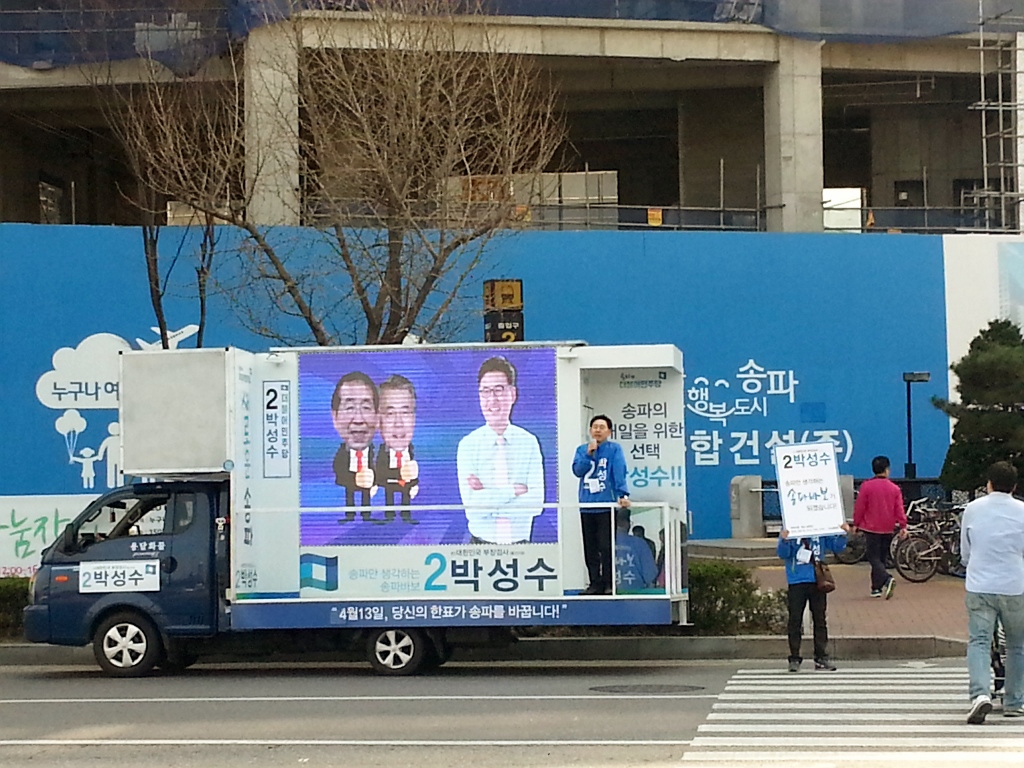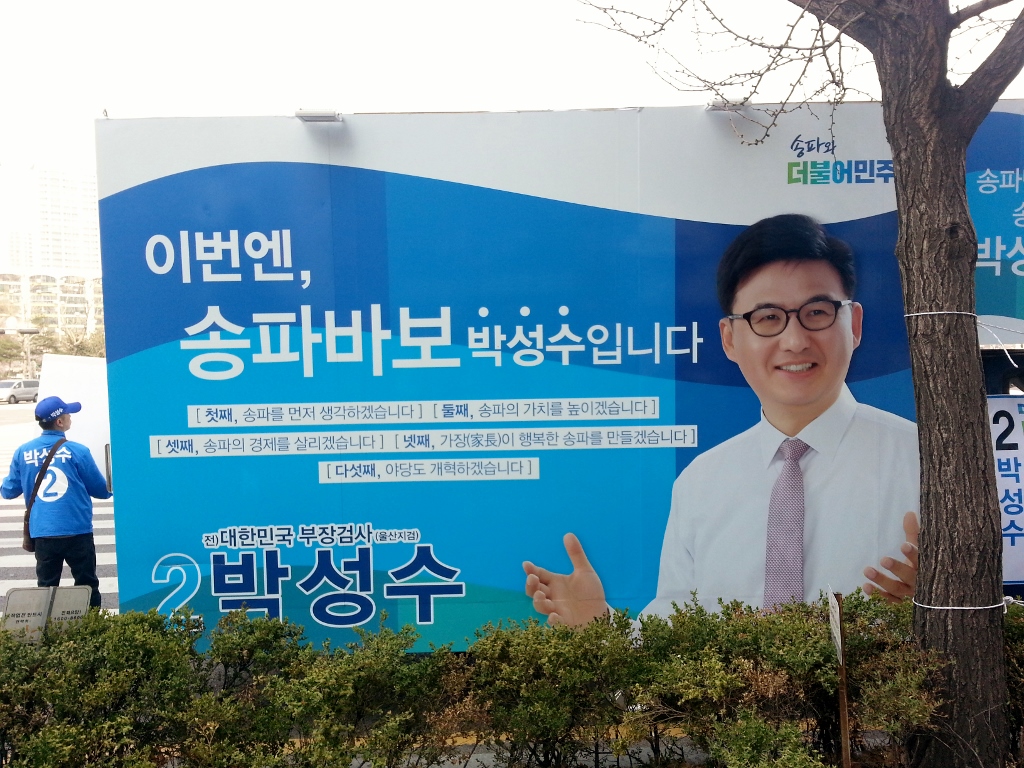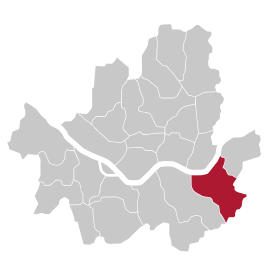This year, direct elections will be held in 253 constituencies, with a further 47 members allocated proportionally based on party vote totals, for a total of 300 seats.
The current National Assembly has only 292 seats filled (Korean Wiki), presumably because of the expulsion and jailing, in 2014, under charges of treason, of several far-left National Assembly members. The Korea Herald, the right-leaning English newspaper, suggested Monday, disapprovingly, that some of the remnants of this far-left party, allegedly pro-North-Korea, have regrouped and are running again in 2016.
Here is the election outlook, according to the Korea Herald, reporting on recent polls:
Likely to Win (“safe seats”)
82 seats: Saenuri Party [새누리당] (right-wing, currently governing with a slim majority and the presidency)
35 seats: Democratic Party [더불어민주당] (left-wing, heirs to the Sunshine Policy but trying hard to “rebrand”)
20 seats: People’s Party [국민의당] recently formed by Ahn Cheol-Soo [안철수] (called “centrist;” populist) (See post-342)
6 seats: Others and Independents
110: Too Close to Call
253: Total Seats to be Elected Directly (plus 47 proportional = 300).
|
Some of these political noise trucks are mobile and some are stationary. This one, being stationary, allowed me to get good shots of it, front and back.
This was in Seoul’s Songpa District (in red), directly east of Gangnam District. I originally thought that the man standing in the truck bed was the candidate himself, Park Sung-Soo (박성수), a.k.a. “Number 2,” of the Democratic Party. Candidates very often appear personally on their campaign trucks. I am not so sure anymore. The giant picture of him shows him with glasses… |
The Fool of Songpa, though, seems likely to lose. I learn from Korean Wiki that Songpa District (송파구) of Seoul, a rather wealthy area, is a stronghold of the conservative Saenuri Party. All three of Songpa District’s current National Assemblymen are Saenuri members. Gangnam District itself is just as solidly Saenuri.
The Democratic machine was clearly weaker in the area. Behold, above, the two-man street-corner operation during prime Saturday politicking hours. The “red team” (Saenuri Party) had a much slicker operation in the neighborhood (See again post-343, at the end, for a further brief account of each side’s politicking tactics as I experienced them in my own small way.)




I have learned that the phrase “The Fool of Songpa,” while technically a correct translation of “송파바보,” actually carries another connotation. A Korean teacher told me, Wednesday, later confirmed by a friend, that this phrase refers to someone who is fanatically driven, or devoted, to something, and will work ceaselessly on its behalf.
To maintain some connection with the original “바보” (meaning: fool, idiot; a quite mild insult in Korean used by children), I might alter the translation of his placard as follows:
“Park Sungo-Soo: the Man Who is Crazy About Songpa!”
According to the teacher’s explanation, this usage of “바보” has entered Korean very recently (it appears in no dictionary I found), carrying over from the phrase “딸바보,” meaning a father fawningly devoted to his daughter.